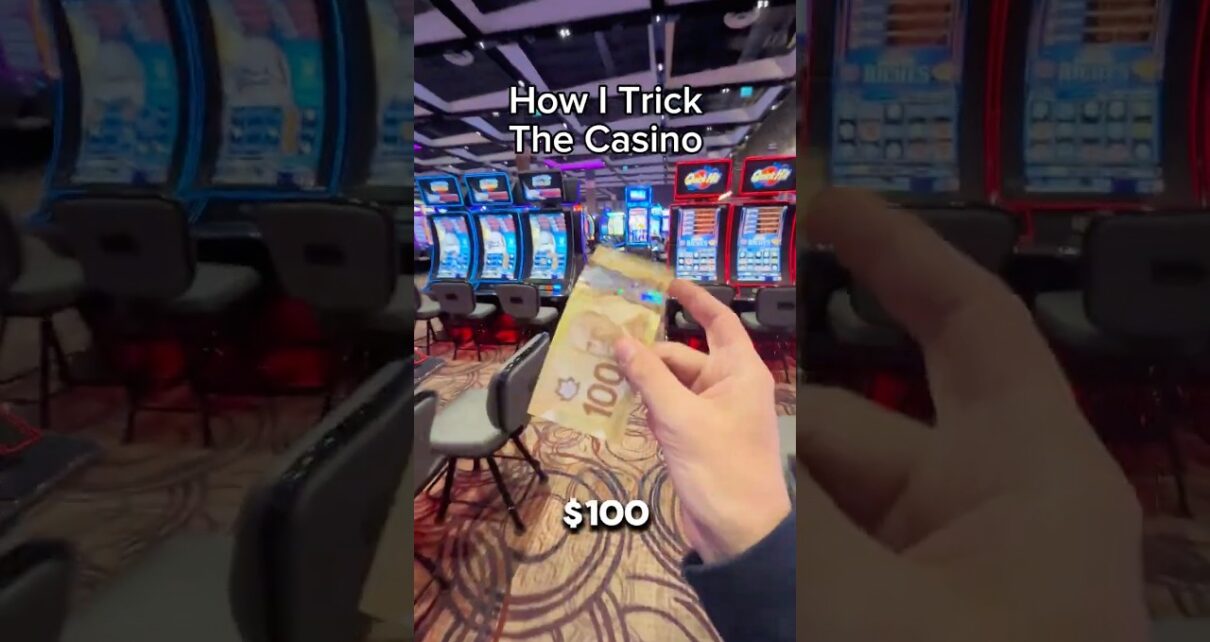Tricking The Casino: Myths, Legends, and Realities
Casinos are often viewed as mystical places, where fortunes can change in an instant, and luck is just a roll of the dice away. The allure of potential riches has led many to explore ways to "trick" the casino, whether through sophisticated strategies, clever tactics, or outright deception. However, the reality of the casino world is far more complex than the glamorous stories portrayed in movies and novels. In this article, we will explore the myths and realities of tricking the casino, delving into the strategies that might give players an edge, as well as the risks and consequences of deceitful practices.
The Myths of Tricking the Casino
1. Card Counting in Blackjack
One of the most famous myths is the idea of card counting in blackjack. Many believe that mastering this technique will guarantee a win. Card counting involves keeping track of the ratio of high to low cards remaining in the deck and adjusting bets accordingly. While it can give a player an advantage, casinos have countermeasures in place. They use multiple decks, shuffling machines, and pit bosses trained to spot counters. For every success story, countless players have been banned from casinos for attempting this strategy.
2. Strategic Betting Systems
Various betting systems, such as the Martingale, Fibonacci, and Labouchere, claim to outsmart the house by managing bets strategically. While these systems can create the illusion of control, they do not alter the inherent odds of the games. In the long run, the house always has an edge, and players may find themselves in deeper financial trouble, chasing losses without success.
3. The "Lucky" Rituals
Many players believe in lucky charms or rituals that can influence luck, such as wearing specific clothing or performing a routine before placing bets. These superstitions make for great stories but lack any grounding in reality. Casinos operate on mathematical principles, and no amount of good vibes can change the odds.
The Realities of Tricking the Casino
1. The House Edge
The fundamental truth about casinos is the house edge—a statistical advantage held by the casino in every game. This means that, in the long run, the house will always win. While players can use strategies to minimize losses or increase their chances temporarily, there’s no guaranteed method to beat the system.
2. Ethical Considerations
Many strategies touted as "tricks" verge on unethical territory. Cheating, whether through collusion, electronic devices, or other illegal means, not only risks significant legal consequences but also represents a breach of trust with gaming establishments. Most casinos have stringent security measures and legal repercussions for those caught attempting to deceive them.
3. Skill-Based Games
Some games, like poker, are more skill-based. Here, players can use strategy, psychology, and sharp decision-making to gain an edge over opponents. However, casinos themselves still profit from the games by taking a cut of each pot (the rake), ensuring they stay ahead regardless of player skill.
4. Gambling Responsibly
The best way to "trick" the casino is to play smart and gamble responsibly. Understanding the odds, setting limits, and viewing gambling as a form of entertainment rather than a source of income are crucial steps for any player. Emphasizing skill in games you are familiar with, while embracing the entertainment aspect, can improve your overall experience.
Conclusion
The notion of tricking the casino is an enticing one, filled with stories of clever players who outsmart the system and walk away winners. However, the reality is that while there may be strategies that provide short-term gains, the house edge makes long-term success unlikely for most gamblers. Moreover, the allure of trickery often leads to unethical behaviors that can tarnish the spirit of the game.
Ultimately, embracing a responsible and informed approach to gambling is the most effective "trick" players can employ. Enjoy the thrill of the game, respect the odds, and remember that the primary purpose of visiting a casino is entertainment, not necessarily profit.

